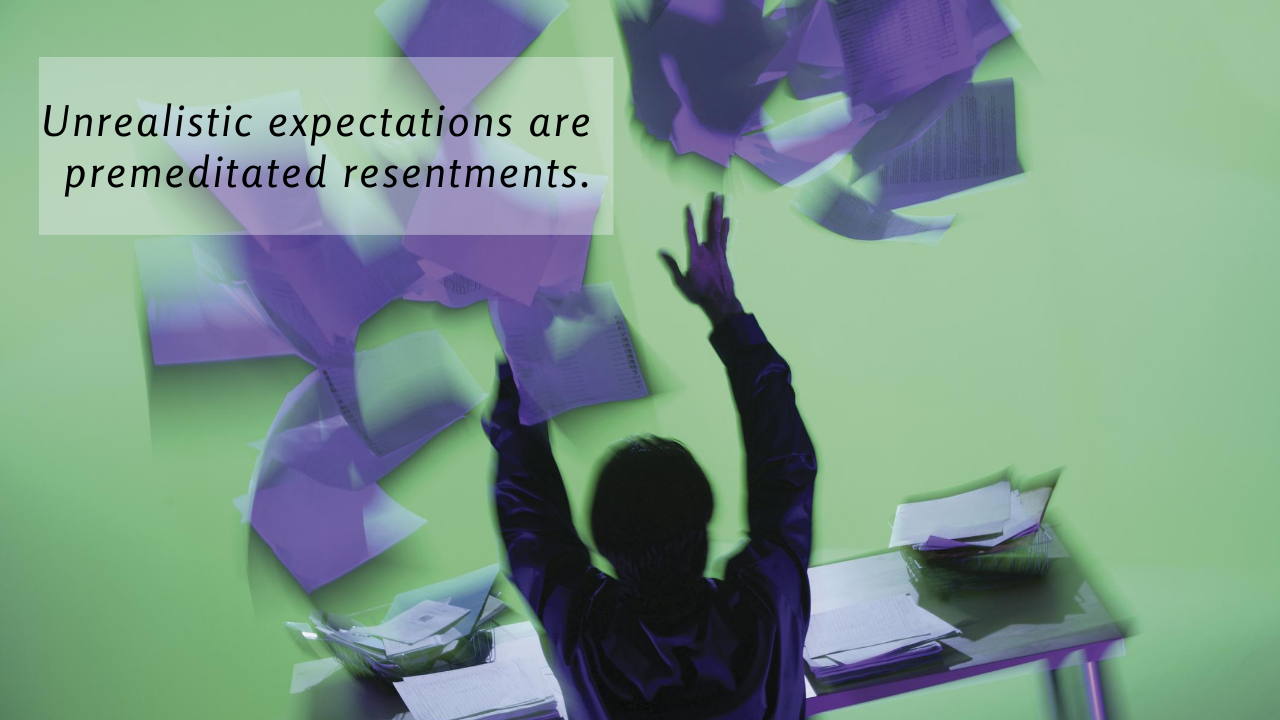Who are you going to end up resenting?
Here's a soundbite of consulting advice recently dished out from my dining room.
"People aren't good guessers."
Not complex, but when digging into obstacles, this is usually at the scene of the crime.
Are you making your broker, client, prospect, or employee (or family member in our WFH world) guess what you need?
In the midst of a global pandemic?
Pause and think about it.
When you examine your to-do list, what do you need from another human being to make progress on that item?
How do you know that they know what behaviors and actions are required for mutual success?
"Take Action" is August's theme in the Account Executive Think Tank where graduates of the AE Academy collaborate 2x per month. We're hyper-focused on everything we can control by September 1st to be prepared for busy season.
Employee Benefits is a team sport, so preparation necessarily involves others. And no guessing.
I shared a short blog about expectations that prompted a good conversation, so I'm including here.
The Psychology of Expectations: Why unrealistic expectations are premeditated resentments
When you inevitably guess wrong, who are you going to end up resenting?
Key points:
- Expecting something to happen will not make it happen.
- The problem of expectations occurs when we expect something to happen without good reasons for that expectation.
- Many of us at some point have mistakenly believed that expecting other people to behave the way we want will actually make them behave that way.
- It is hard for someone to live up to your expectations when they don't know what they are.
Need a topic for your next team meeting?
Leverage this and invite people to share what they need to be (and feel) successful.
In addition to getting great work done, clear expectations also help people feel good about their contribution. Less stress all around. 🎉
Not sure what someone needs from you? Ask. Let them know you want to do great work and aren't a good guesser.

